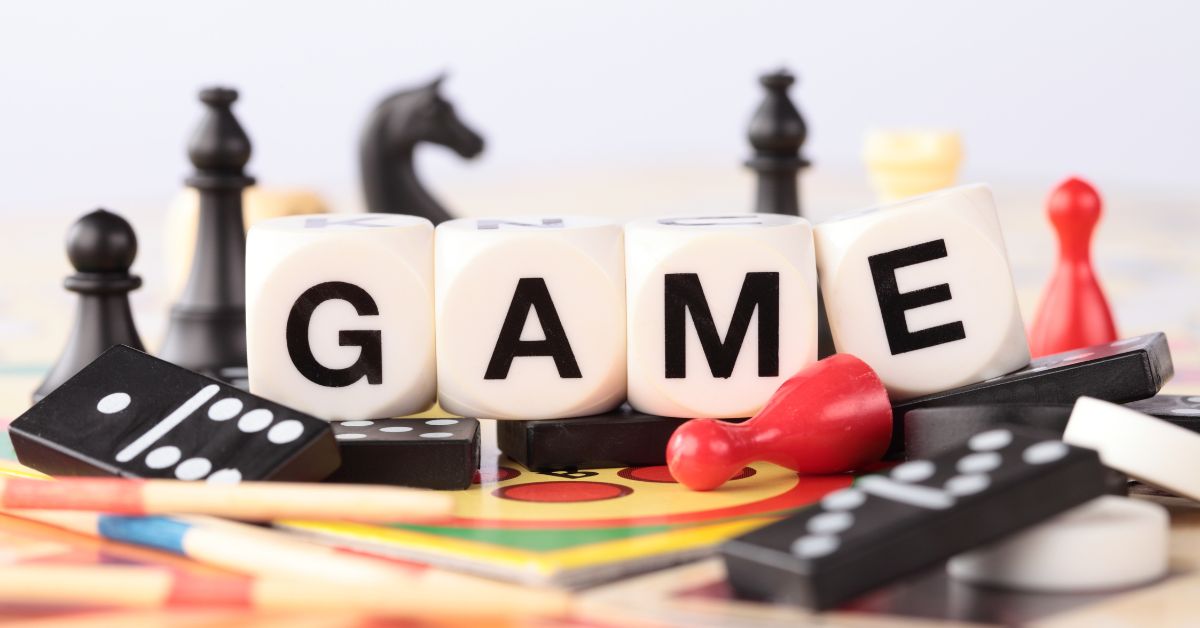Homeschooling opens up a world of opportunities to explore innovative teaching methods. One such method is the use of board games to teach children essential skills like math and strategic thinking. Educational board games for math can make learning enjoyable and interactive, offering homeschoolers a hands-on way to engage with challenging subjects.
Below, we’ll explore the benefits of using board games in a homeschool environment, highlight practical game ideas for teaching both math and strategy, and show you how to incorporate gameplay seamlessly into your routine.
How Board Games Teach Strategy And Decision-Making
Strategic thinking is an invaluable skill, guiding children to make thoughtful decisions in all aspects of life. Homeschool parents can use board games as a fun and relaxed way to nurture these abilities with their kids. Strategy-based games inspire children to evaluate options, plan ahead, and adapt to changing situations—all while enjoying themselves.
Building Core Strategy Skills Through Play
Several core skills emerge when children play strategy-focused games. These include:
- Planning Ahead: Board games often require players to think several steps ahead. Whether it’s plotting long-term objectives or making short-term decisions, kids develop planning abilities.
- Critical Thinking: Games like Chess or Risk challenge children to analyze the current game state and make informed, logical choices to improve their position.
- Adapting to Change: When opponents make unexpected moves, players must rethink their strategies and adjust accordingly.
- Working with Others: Many strategy games include elements of negotiation and teamwork, teaching kids the importance of cooperation and compromise when working toward shared goals.
Games such as Ticket to Ride or Carcassonne are perfect for teaching these skills. For instance, Ticket to Ride requires players to maximize their train routes based on limited resources and competition from other players. Similarly, Carcassonne encourages shape-based strategy and resource gathering as players claim roads and fields.
By emphasizing strategy-based play, homeschoolers can create learning experiences that build confidence and decision-making skills in an enjoyable way.
Beyond Winning and Losing
Strategic board games also teach important lessons about effort, perseverance, and learning from mistakes. Unlike traditional lectures or worksheets, games provide a safe environment for trial and error. Children learn that losing isn’t failure—it’s an opportunity to reflect, improve, and try again. Playing alongside your kids can encourage meaningful conversations about these lessons, helping them see how strategy translates to real-life problem solving.

Engaging Math Board Games For Homeschool Classrooms
Math is a subject that many homeschoolers approach with cautious enthusiasm. Some children naturally excel in numbers, while others struggle to connect abstract ideas with real-world applications. Educational board games for math bridge this gap, making numbers tangible and turning practice into play.
Top Math Board Games for Homeschoolers
Here’s a look at some versatile math-focused board games that cater to different age groups and skill levels:
1. Math Dice Jr.
-
- Suitable for younger children starting their math journeys, Math Dice Jr. builds addition and subtraction skills through dice-rolling challenges.
-
- What Kids Learn: Counting, basic arithmetic, and creative problem-solving.
2. Prime Climb
-
- This visually appealing game is designed to teach older kids multiplication, division, and prime numbers while racing to the finish line.
-
- What Kids Learn: Prime numbers, factorization, and strategic thinking.
3. Sum Swamp
-
- A favorite for younger learners, this game keeps kids entertained with simple addition and subtraction problems as they move through a swamp-themed board.
-
- What Kids Learn: Addition, subtraction, and number comparison.
4. Equate
-
- This game merges math concepts with Scrabble-style gameplay, allowing players to form equations with tiles on a board.
-
- What Kids Learn: Equations, fractions, decimals, and problem-solving.
5. Money Bags
-
- Teaching financial literacy, this game encourages players to count coins and handle money while completing everyday transactions.
-
- What Kids Learn: Basic money management, addition, and subtraction.
Some games also cross categories, blending math with strategy in a way that feels effortless. Encourage children to experiment with these games and find their favorites—this ensures they’ll stay engaged and enthusiastic during lessons.
Benefits of Math Board Games
The beauty of math-focused board games lies in their ability to make complex concepts approachable and enjoyable. Key benefits include:
- Reinforcement Through Repetition: By encountering math problems in a game format, children naturally reinforce skills without it feeling repetitive or tedious.
- Building Confidence: Games highlight progress through “small wins,” boosting confidence and making math less intimidating.
- Encouraging Versatility: Many math games allow for different difficulty levels, so children grow at their own pace without frustration.
- Practical Application: Games like Money Bags align abstract math concepts with everyday scenarios, helping kids see the value of what they’re learning.
By selecting games suited to your child’s developmental stage, you can foster a positive relationship with numbers that extends beyond the homeschool day.
Tips For Making Board Games A Regular Learning Tool
The magic of educational board games lies in how easily they can fit into your homeschool routine. Games are more than just entertainment—they’re tools for teaching. Below are practical ways to incorporate board games into your daily or weekly schedule.
Building a Routine Around Education and Play
1. Schedule Game Time: Designate specific days for board game sessions. A once-a-week “Game Wednesday” or bi-weekly “Math Game Hour” can build excitement and anticipation.
2. Match Games to Lessons: Use board games to reinforce topics covered during traditional lessons.
-
- Example: After a multiplication-focused session, follow up with Prime Climb to help kids solidify the concept.
3. Offer Choices: Create a rotation of board games and allow children to pick the one they want to play. This gives them a sense of control over their learning.
4. Combine Groups: Some games are great for solo learners, while others work best in group settings. Invite other homeschooling families for joint board game lessons to introduce social learning.
5. Anchor Games with Reflection: After gameplay, discuss what they learned. For example:
-
- What strategies or tactics worked?
-
- How did math skills help win the game?
-
- What could they do differently next time?
Tying gameplay to your homeschool curriculum and adding elements of choice and reflection keeps learning both intentional and flexible.
Fostering Emotional and Intellectual Growth
The value of board games extends beyond academics. The process of solving problems, overcoming challenges, and dealing with wins or losses helps develop soft skills like patience and resilience. Create a positive gaming atmosphere where emotions—whether triumphs or struggles—are shared openly and celebrated. When children see games as a learning environment, they naturally push beyond their comfort zones.
Why Board Games Are A Holistic Learning Tool
Though math and strategy skills are the primary focus, educational board games offer additional benefits that contribute to a child’s overall development. They teach:
- Social and Communication Skills: Many games require players to explain their decisions, negotiate trades, or work as a team.
- Logical Thinking: Children sharpen their ability to analyze options and anticipate outcomes, helping them tackle challenges with a structured mindset.
- Time and Resource Management: Strategy games in particular emphasize balancing priorities within constraints.
- Patience and Focus: Longer games or those with complex mechanics teach children to stay engaged and see tasks through to completion.
These multifaceted advantages make board games an indispensable part of a homeschooling toolkit. Children learn better when plenty of elements—fun, challenge, collaboration—combine effortlessly to engage both the mind and emotions.
Using educational board games for math and strategy fosters critical thinking in children while making homeschooling entertaining and effective. Whether you’re rolling fractions in Sum Swamp or formulating a train route in Ticket to Ride, these games capture the joy of learning in a way that resonates with kids.
By adopting board games as a regular teaching method, homeschoolers can give children the tools to master academic subjects while also learning lifelong skills like decision-making, teamwork, and adaptability. Consider experimenting with different games and approaches to see what clicks best for your family—you might be surprised at the depth of learning that flows naturally from play.





